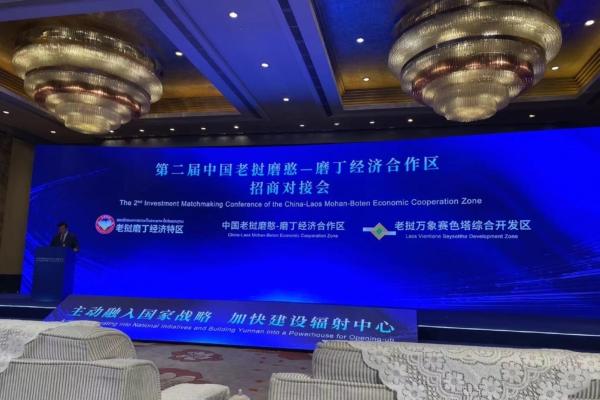A Chinese consumer rights activist recently disclosed to The Epoch Times that major Chinese telecom service providers and web portals collude to cheat mobile phone users through extra service charges.
Mr. Tang from Pingdingshan City, Henan Province said, as a consumer, he has been fighting for his rights since 2008.
According to Tang, major internet companies in China, such as Tencent and Sina, and cell phone companies such as China Mobile and China Unicom, have sent out text messages to entice consumers into participating with the expectation of receiving compensation in the form of Q&A rewards, psychic readings, and so forth. However, anyone responding is charged a high user fee.
Tang continued, “Tencent in Shenzhen City has been sending a number of false text messages to users to inform them that they have won something. Most people answer the text messages, assuming they are genuine since they are sent by a leading Internet company. However, no one has received the prizes or cash—instead, they receive a US$4.10 (28 yuan) service charge from the cell phone company.”
Mr. Tang also said, “Sina played an even worse trick by using a hidden key function which the mobile phone users would unknowingly press as long as they use the phone and receive text messages. The message might be from a fortune teller. Whether or not the consumer wants to participate, the cost for receipt of the message is automatic and expensive.
Mr. Tang disclosed that between January 20 and April 19 of 2008, he and his friends often received Tencent’s text messages advertising compensation for completing questionnaires. They would all receive a text message from their mobile phone service provider right after they finished the last question. It would state, “You have reached the usage limit for this month. Please continue to use the service next month.” As a result, no one received any compensation—but they did receive a service charge of US$4.10 (28 yuan) on their bill.
Mr. Tang’s involvement in protecting consumer rights has enabled him to access and speak with some of the senior public relations personnel in the industry. He said, ”(I learned that) all these major network Web sites have local branch and public relations offices around the country. Tencent actually spent over US$146,300 (1,000,000 yuan) a year in Henan province alone for public relations. The money has been used to bribe high-ranking officials to protect their fraudulent conduct.”
During his dispute with these companies, no mainland media would dare to touch his case. He said, “There were some media showing interest. After they obtained my evidence, they all informed me that this involved big companies. The regime would not allow reporting cases like this due to its negative impact.”
Since April 2008, Mr. Tang has complained to Mobile, Unicom, and the consumer protection department about Tencent’s illegal charges, and has requested compensation in accordance with the regulations. However, his requests have been ignored.
In the appeal process, the court also threatened him and asked him to drop the lawsuit or settle in person. He refused.
Mr. Tang expressed the hope that the public would become more aware of consumer rights and stop being silent. He also hopes that overseas media will pay more attention to the Chinese telecommunication companies’ fraudulent business conduct.
Mr. Tang from Pingdingshan City, Henan Province said, as a consumer, he has been fighting for his rights since 2008.
According to Tang, major internet companies in China, such as Tencent and Sina, and cell phone companies such as China Mobile and China Unicom, have sent out text messages to entice consumers into participating with the expectation of receiving compensation in the form of Q&A rewards, psychic readings, and so forth. However, anyone responding is charged a high user fee.
Tang continued, “Tencent in Shenzhen City has been sending a number of false text messages to users to inform them that they have won something. Most people answer the text messages, assuming they are genuine since they are sent by a leading Internet company. However, no one has received the prizes or cash—instead, they receive a US$4.10 (28 yuan) service charge from the cell phone company.”
Mr. Tang also said, “Sina played an even worse trick by using a hidden key function which the mobile phone users would unknowingly press as long as they use the phone and receive text messages. The message might be from a fortune teller. Whether or not the consumer wants to participate, the cost for receipt of the message is automatic and expensive.
Mr. Tang disclosed that between January 20 and April 19 of 2008, he and his friends often received Tencent’s text messages advertising compensation for completing questionnaires. They would all receive a text message from their mobile phone service provider right after they finished the last question. It would state, “You have reached the usage limit for this month. Please continue to use the service next month.” As a result, no one received any compensation—but they did receive a service charge of US$4.10 (28 yuan) on their bill.
Mr. Tang’s involvement in protecting consumer rights has enabled him to access and speak with some of the senior public relations personnel in the industry. He said, ”(I learned that) all these major network Web sites have local branch and public relations offices around the country. Tencent actually spent over US$146,300 (1,000,000 yuan) a year in Henan province alone for public relations. The money has been used to bribe high-ranking officials to protect their fraudulent conduct.”
During his dispute with these companies, no mainland media would dare to touch his case. He said, “There were some media showing interest. After they obtained my evidence, they all informed me that this involved big companies. The regime would not allow reporting cases like this due to its negative impact.”
Since April 2008, Mr. Tang has complained to Mobile, Unicom, and the consumer protection department about Tencent’s illegal charges, and has requested compensation in accordance with the regulations. However, his requests have been ignored.
In the appeal process, the court also threatened him and asked him to drop the lawsuit or settle in person. He refused.
Mr. Tang expressed the hope that the public would become more aware of consumer rights and stop being silent. He also hopes that overseas media will pay more attention to the Chinese telecommunication companies’ fraudulent business conduct.



